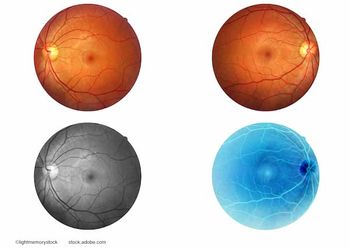
CDC investigating infections, 1 death linked to eye drops
According to a news release, the CDC is urging that clinicians and patients immediately discontinue the use of EzriCare Artificial Tears until the epidemiological investigation and laboratory analyses are complete.
The use of EzriCare Artificial Tears has been linked to 50 infections in 11 states that have led to individuals suffering permanent vision loss, hospitalization and 1 death, leading the US Centers for Disease Control (CDC) to urge health care providers and consumers to stop using the product.
According to a news release from the Centers for Disease Control and Prevention (CDC), it is investigating a multistate cluster of Verona Integron‐mediated Metallo‐β‐lactamase (VIM)‐ and Guiana‐Extended Spectrum‐β‐Lactamase (GES)‐ producing carbapenem‐resistant Pseudomonas aeruginosa (VIM‐GES‐CRPA) linked with multiple infection types, including eye infections. Recent epidemiology and laboratory evidence link these infections to use of EzriCare Artificial Tears.
“CDC recommends that clinicians and patients immediately discontinue the use of EzriCare Artificial Tears until the epidemiological investigation and laboratory analyses are complete,” the CDC said in its news release.
In its investigation, the CDC tested open bottles of EzriCare drops and identified Pseudomonas aeruginosa bacteria that were resistant to carbapenem antibiotics as well as the antibiotics ceftazidime and cefepime. The CDC continues to test unopened bottles, according to its news release.
According to the CDC, May 17, 2022, to January 19, the center, in partnership with state and local health departments, identified 56 isolates from 50 case patients from 11 states (California, Colorado, Connecticut, Florida, New Jersey, New Mexico, Nevada, New YHork, Texas, Utah and Washington) with VIM‐GES‐CRPA; 38 cases are part of 4 facility clusters.
The CDC noted that the dates of specimen collection are from May to December 2022. Isolates have been identified from clinical cultures of cornea (10), sputum or bronchial wash (11), urine (6), other nonsterile sources (4), and blood (2), and from rectal swabs (23) collected for surveillance. These specimens were collected in both outpatient and inpatient healthcare settings. Patient outcomes include permanent vision loss resulting from ocular infection, hospitalization, and death of one patient with bloodstream infection.
In addition to demonstrating carbapenem resistance, isolates in this cluster are resistant to ceftazidime and cefepime; the subset of isolates that underwent antimicrobial susceptibility testing for ceftazidime‐ avibactam and ceftolozane‐tazobactam were also resistant to these agents. Isolates are sequence type (ST) 1203, harbor blaVIM‐80 and blaGES‐9 (a combination not previously observed in the United States) and are closely related based on analysis of whole genome sequencing (WGS) data.
Moreover, the review of common exposures among patients identified that the majority of patients used artificial tears prior to identification of VIM‐GES‐CRPA infection or colonization.
The most common brand reported was EzriCare Artificial Tears, a preservative‐free product dispensed in multidose bottles. Laboratory testing of EzriCare Artificial Tears by CDC identified the presence of VIM‐CRPA in opened EzriCare bottles; these VIM‐CRPA are undergoing further characterization, including testing for GES and to determine ST, to assess if they match the outbreak strain. Testing of unopened bottles of EzriCare Artificial Tears is ongoing.
In a statement on its website, EzriCare noted that it is aware of the CDC investigation related to the over-the-counter eye drops, a formulation designed and imported by Aru Pharma Inc. and manufactured by Global Pharma Healthcare PVT Ltd.
“EzriCare has received no consumer complaints or adverse event report related to the investigation to date,” the company said in the statement posted to its website. “ Also, as of this date, EzriCare has not received communication from any regulatory agency providing any outcomes or details to EzriCare about the ongoing investigation.”
The company also noted that it has not been asked to conduct a recall.
The CDC recommends that clinicians and patients immediately discontinue the use of EzriCare Artificial Tears until the epidemiological investigation and laboratory analyses are complete.
Clinical laboratories that identify any carbapenem‐resistant P. aeruginosa from an ocular specimen or VIM‐CRPA from any specimen source should submit the isolate to the Antimicrobial Resistance Laboratory Network for further characterization. Please reach out to your health department’s healthcare‐associated infections contact (https://www.cdc.gov/hai/state‐based/index.html) or email haioutbreak@cdc.gov for assistance submitting isolates.
Newsletter
Keep your retina practice on the forefront—subscribe for expert analysis and emerging trends in retinal disease management.














































